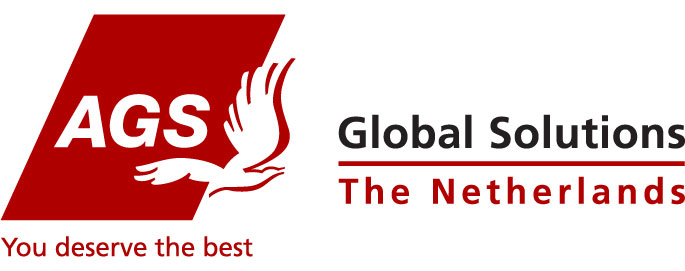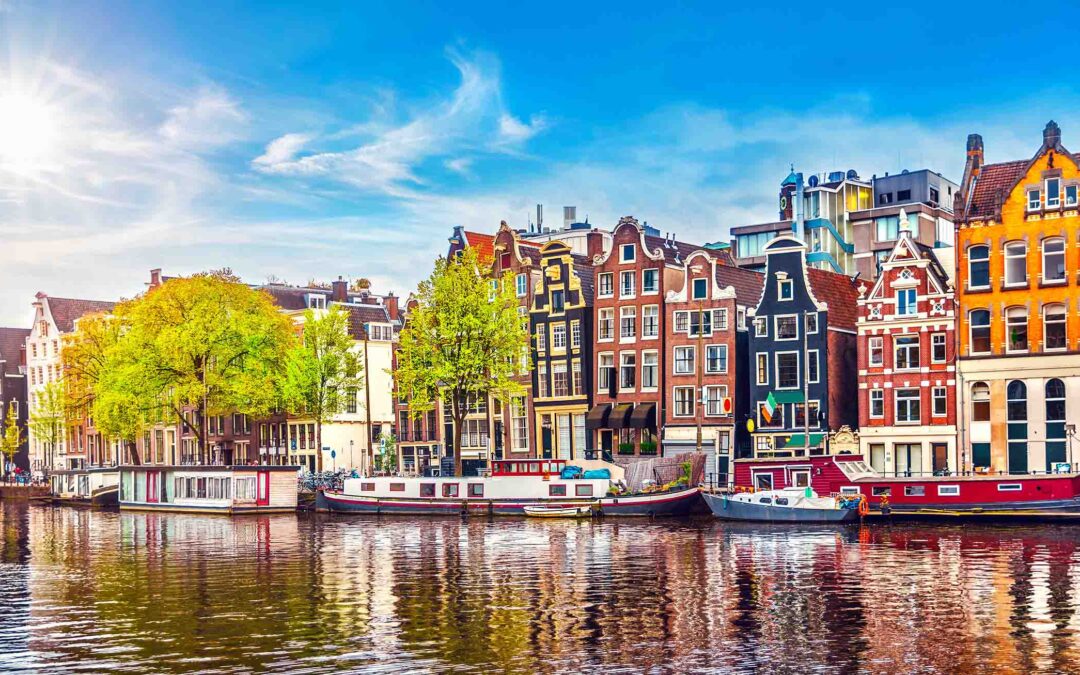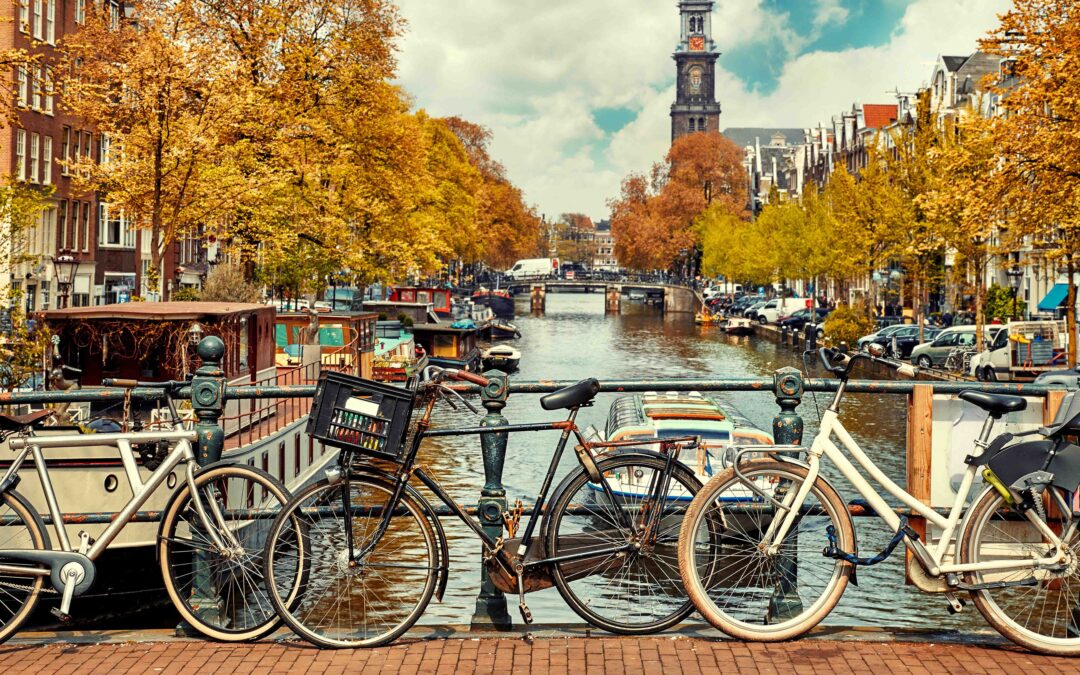Bonjour! Whether you’re drawn by the allure of French cuisine, the charm of Parisian streets, or the sunny beaches of the South of France, moving to France is always an exhilarating prospect. This blog post aims to simplify your move from the Netherlands to France, covering everything from immigration and the cost of living to understanding French culture. So grab cup of coffee (or a glass of Bordeaux) and let’s get started.
Why move to France from the Netherlands?
The charm of France has been drawing Dutch expats for many years. One of the primary motivations is the distinct and attractive lifestyle on offer. The French work culture, for instance, is noticeably different from the Dutch, focusing more on work-life balance and leisure time. Additionally, the country’s rich history, stunning landscapes, and gastronomic delights make it an irresistible destination.
What are the legal requirements to move to France?
 As with any international move, there are legal requirements that you must meet before moving to France from the Netherlands. If you are an EU citizen, you can live and work in France without a visa. However, if you are a non-EU citizen, you will need to obtain a long-stay visa and residence permit.
As with any international move, there are legal requirements that you must meet before moving to France from the Netherlands. If you are an EU citizen, you can live and work in France without a visa. However, if you are a non-EU citizen, you will need to obtain a long-stay visa and residence permit.
Regardless of your status within the EU, you will need to register with your local French authorities within three months of your arrival to obtain a social security number and health insurance. It’s essential to research and understand all the legal requirements before making your move to avoid any complications.
What is the cost of living in France?
On the whole, it’s a bit more expensive to live in France than in the Netherlands, though this can also depend on your lifestyle and expenditure patterns. Costs can also rise or fall depending on your location, a bustling metropolis like Paris, for example, versus a smaller, more rural town or village.
The table below compares the typical cost of living between the Netherlands and France as of January 2024. It’s important to note that the prices indicated for France are an average across the country. In Paris, especially, prices may be 30-40% steeper, with accommodation costs potentially even higher. Prices can also vary based on the type of product and service provider.
| Accommodation | The Netherlands | France |
| One-bedroom Apartment in City Centre | €1340 | €785 |
| One-bedroom Apartment Outside of Centre | €1065 | €580 |
| Three-bedroom Apartment in City Centre | €2105 | €1470 |
| Three-bedroom Apartment Outside of Centre | €1635 | €1165 |
| Markets | The Netherlands | France |
| Milk (1 litre) | €1 | €1 |
| Dozen Eggs | €4 | €4 |
| Chicken Breasts (1kg) | €14 | €13 |
| Bottle of Wine (Mid-Range) | €6 | €7 |
| Restaurants | The Netherlands | France |
| Cappuccino | €3 | €3 |
| Coca-Cola (330ml) | €3 | €3 |
| Meal for 2 at a mid-range restaurant (3-course) | €70 | €60 |
| Local Draught (500ml) | €5 | €6 |
| Utilities and Transportation | The Netherlands | France |
| Basic Utilities (Electricity, Heating, Cooling, Water, Garbage) | €221 | €172 |
| Mobile Phone Monthly Plan (Calls and 10GB Data) | €23 | €29 |
| Fuel (1 litre) | €2 | €2 |
| Monthly Transportation Pass | €79 | €75 |
| Childcare | The Netherlands | France |
| International Primary School for 1 child (Yearly) | €7312 | €10 125 |
How do I find a job in France?

If you plan on working in France, it’s essential to start looking for a job before your move. The most common industries for expats are tourism, hospitality, teaching English, and technology.
You can search for job opportunities via online platforms such as: Indeed France, Pôle Emploi, and APEC – the national employment agency for professional and managerial job posts. Or reach out to recruitment agencies that specialise in helping expats find jobs.
Having a good understanding of the French language will also increase your chances of finding employment. We’ll cover this more in detail later in the guide.
What are popular residential areas in France for expats?
 When it comes to settling down in France, expats have a variety of residential areas to choose from, each with its unique charm and appeal. Some of the best cities to live in France include Paris, Lyon, Bordeaux, Toulouse, and Marseille.
When it comes to settling down in France, expats have a variety of residential areas to choose from, each with its unique charm and appeal. Some of the best cities to live in France include Paris, Lyon, Bordeaux, Toulouse, and Marseille.
For those looking for a more relaxed lifestyle, the south of France is a popular choice. Cities like Nice and Cannes offer beautiful coastlines and warm weather year-round. Plus, they are known for their vibrant expat communities. The latest demographics show a total of 36,759 Dutch immigrants living in France.
How do I prepare for the move to France?
Make sure your healthcare is covered in France
France is known for its high-quality healthcare, but it’s essential to make sure you have adequate coverage before your move. If you are an EU citizen, you can obtain a European Health Insurance Card (EHIC) that will cover you for any necessary medical treatment.
If you are a non-EU citizen, take the time to research and secure private health insurance before your move. Health insurance is compulsory for everyone, whether you’re employed or not. Understanding how the French healthcare system works will be valuable as you navigate your healthcare needs in your new environment.
Have an understanding of French culture
France and the Netherlands each have unique cultures, and the more you interact with French locals, the more cultural differences you’ll discover. It’s a wonderful opportunity to broaden your horizons, enhance your communication skills, and boost your cultural understanding. But it helps to know what to expect. Here are two key cultural contrasts you’ll likely notice right away:
- Hierarchy & Communication:
- In Dutch culture, people lean towards equality and straight talk. First names are often used, even in professional situations, and folks appreciate open, honest dialogue.
- In contrast, French culture values hierarchy and formality, with titles often used in conversation. Their communication style can be subtler, which might seem aloof if you’re used to Dutch directness.
- Bureaucracy:
- Dutch administrative processes are generally efficient and simple.
- On the other hand, French bureaucracy is known for its intricacy and slower pace, which could be frustrating if you’re used to the Dutch approach.
A great way to dive into French culture is by tasting their scrumptious food, joining local events, and learning about French manners and traditions. Speaking the language will help you bond with locals and feel more at home in your new environment.
Learn the French language
 Although many people in France can speak English, learning French will make your experience living there even more enjoyable, particularly if end up living in a more rural area. It will also increase your job prospects and help you navigate daily errands such as grocery shopping and interacting with locals.
Although many people in France can speak English, learning French will make your experience living there even more enjoyable, particularly if end up living in a more rural area. It will also increase your job prospects and help you navigate daily errands such as grocery shopping and interacting with locals.
You can start by taking classes, practicing with online tools or apps such as Babbel or Duolingo, or finding a language exchange partner. The more you immerse yourself in the language, the quicker you will learn and adapt to your new home.
We hope this guide has provided you with valuable information about moving to France from the Netherlands. Remember to do thorough research and plan ahead so that your move can be smooth and successful.
AGS Global Solutions Netherlands can help you with all aspects of your move, from packing to immigration, relocation, and destination support. Contact AGS Global Solutions Netherlands for a free quote and start planning your move to France.





